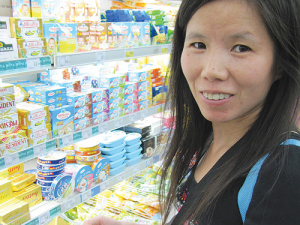Birth woes
OPINION: What does the birth rate in China have to do with stock trading? Just ask a2 Milk Company.
 KPMG’s Ian Proudfoot believes NZ agribusiness needs partners well connected and if a Chinese partner can do this, that is positive.
KPMG’s Ian Proudfoot believes NZ agribusiness needs partners well connected and if a Chinese partner can do this, that is positive.
Dairy and milk processing are the New Zealand destinations for overseas investors’ wealth -- not sheep and beef, says a report on cash inflows of the last two years.
Dairy attracted $1.3 billion -- 28% of the $3.4b invested in agri -- whereas sheep and beef ventures attracted a mere $300 million (9%). China was the single-biggest overseas investor in NZ dairy and sheep and beef.
The report, prepared by KPMG with the Overseas Investment Office, shows that between January 2013 and December 2015 about $3.4b was invested in NZ by overseas companies and individuals in a range of agribusiness ventures. This accounted for 13% of the $26.3 billion invested in various NZ sectors including real estate, energy and financials.
China was the largest investor in dairy but France (13%) and the USA (9%) were also in the mix. In sheep and beef, investment from China/Hong Kong was the highest (15%), then Japan (13%) and the US (10%).
KPMG’s global head of agri, Ian Proudfoot, says while China is a dominant investor in dairy, the US, Canada and Europe are also big in other agri-related ventures.
“China is certainly the biggest investor in dairy now, but I’m not sure this will be case in the future,” he says. “What NZ wants is a balanced portfolio of investors, in particular those who want to drive and create value from their investments here.”
Proudfoot refers to concerns in NZ about Chinese investment, the influence of the Chinese state on investment policy and that country’s focus on food security.
“Through Yili they have invested in the Oceania Dairy business in the South Island, but that asset would not have been built without Chinese investment,” he told Rural News. “Without the Yashili investments at Pokeno that would not have happened. They are creating jobs and opportunities for us to produce into higher value product streams.”
Proudfoot believes NZ needs partners well connected to markets and says if a Chinese partner can do this, that is positive.
He also notes concerns expressed about Chinese-owned companies in NZ putting pressure on local ones in the Chinese market.
“I don’t see that as a problem although the nature of the Chinese economy is about connection and relationship. So if you have good relationships and strong connections, that facilitates doing business in the Chinese market.
“So maybe the Chinese-owned companies in NZ have an easier track, but I don’t see them making it difficult for others.”
Proudfoot refers to interesting statistics on the amount of liquid milk going into China: Germany is sending 4L for every 1L NZ sends.
“What the Chinese are looking for is high-quality dairy products that meet their needs and I think they are going to look to NZ to increase the delivery of this product.”
Sheep and beef has potential and needs overseas investment, Proudfoot says.
“Some farmers have been sitting on large amounts of capital in their land and are not highly geared.
“From an investment perspective, they are relatively ‘lazy businesses’ and potentially that means there is opportunity to gear these businesses up and invest more in technology.”
However, Proudfoot concedes getting technology into the red meat sector is complex, requiring care in assessing risks and benefits to ensure investments are fit for purpose.
Surprisingly the report says most freehold land being bought by overseas investors is in Canterbury, Otago and Southland – 49% of the land purchased.
Proudfoot says the positive story from the research is that offshore entities see NZ market as a place worth investing in.
Dairy Women's Network (DWN) has announced that Taranaki dairy farmer Nicola Bryant will join its Trust Board as an Associate Trustee.
Rural Women New Zealand (RWNZ) says it welcomes the release of a new report into pay equity.
Red meat exports to key quota markets enjoyed $1.4 billion in tariff savings in the 2024-25 financial year.
Remediation NZ (RNZ) has been fined more than $71,000 for discharging offensive odours described by neighbours as smelling like ‘faecal and pig effluent’ from its compositing site near Uruti in North Taranaki.
Two kiwifruit orchards in the Bay of Plenty and one in Northland are this year's finalists for the Ahuwhenua Trophy competition.
The Government's chief science advisor, Dr John Roche says the key objective for the science sector in the coming year is bedding down the reforms which sees the merger of the previous entities.

OPINION: A mate of yours truly reckons rural Manawatu families are the latest to suffer under what he calls the…
OPINION: If old Winston Peters thinks building trade relations with new nations, such as India, isn't a necessary investment in…